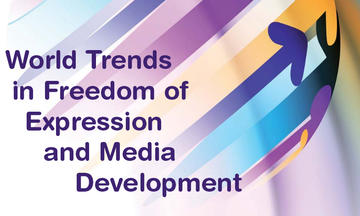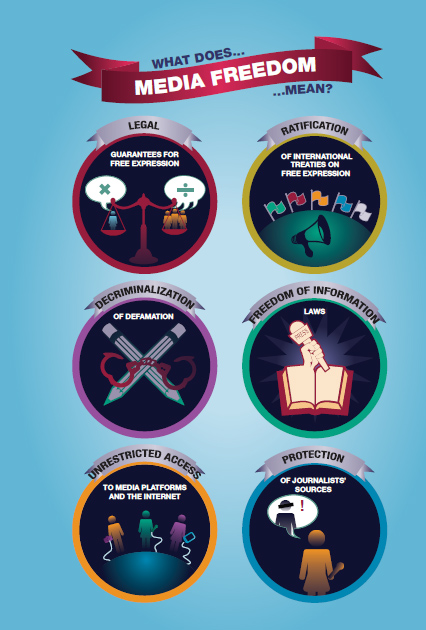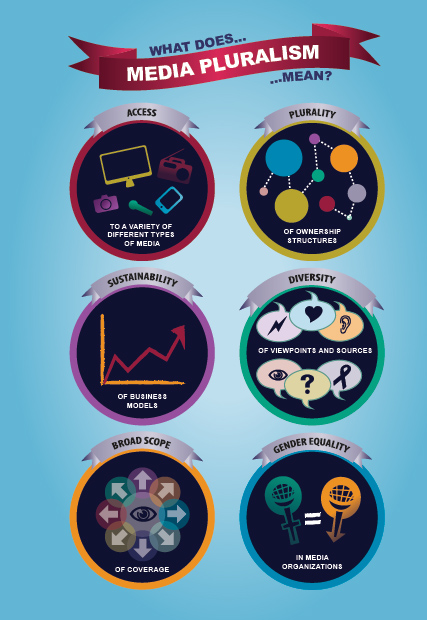
While technological progress and innovative business models have expanded opportunities for freedom of expression, they have also allowed for new threats to emerge in the form of Internet censorship, filtering, blocking, and surveillance, the UN Educational, Scientific and Cultural Organization (UNESCO) warned on March 25th
"Freedom of expression is essential to dignity, dialogue, democracy and sustainable development," UNESCO Director-General Irina Bokova said in Stockholm upon the launch of the agency's new report, World Trends in Freedom of Expression and Media Development.
"We need to act on the ground – to strengthen national legislative frameworks, to train journalists, to build capacity and advance media and information literacy. We must continue to support media independence by promoting professional standards and self-regulation," she added.
The report analyses the issue by focusing on media freedom, pluralism, independence and the safety of journalists, while also examining trends at each level through the perspective of gender equality.
"The overarching global trend with respect to media freedom, pluralism, independence and the safety of journalists over the past several years is that of disruption and change brought on by technology, and to a lesser extent, the global financial crisis," the report said.
But it also stressed that those trends go hand in hand with substantial variations between and within regions as well as countries and that the broad global patterns identified by the authors are accompanied by extensive unevenness within the whole.
The declines in media freedom seen across various regions and political systems over the past years indicated that the percentage of people enjoying this right had dropped to a more than ten-year low in 2012, the report said. Press freedom laws have not always been effectively implemented, the authors found, citing also censorship, whether direct or self-imposed, as one of the challenges journalists worldwide kept facing.
"Despite the continued economic dominance of a handful of companies in both traditional and online media, the vast expansion of information sources and platforms has positively impacted media pluralism," UNESCO said.
While state or public advertising continued to affect media independence, new business models have facilitated the emergence of new players, such as non-profit investigative journalism groups.
"The number of journalist killings has continued to rise," UNESCO noted.
The agency's data showed that 430 journalists, including 23 women, were killed between 2007 and 2012.
"Although conflict zones remain the most dangerous places for journalists, between 2007 and 2011 more were killed outside of these areas, and impunity for these crimes remains the norm," the report noted.
Women journalists, according to the study, "face rising forms of intimidation and abuse, including sexual assault".
But it also welcomed the growing awareness of the importance of journalists' safety throughout the world since 2007, linking it largely to the implementation of the UN Plan of Action on the Safety of Journalists and the Issue of Impunity.
Two infographics by UNESCO:
What does media freedom mean?
What does media pluralism mean?
This publication has been produced with the assistance of the European Union. The contents of this publication are the sole responsibility of Osservatorio Balcani e Caucaso and its partners and can in no way be taken to reflect the views of the European Union. The project's page: Safety Net for European Journalists.A Transnational Support Network for Media Freedom in Italy and South-east Europe.

 UN report highlights downsides of technological progress on freedom of expression
UN report highlights downsides of technological progress on freedom of expression






 All the contents on the Osservatorio Balcani e Caucaso website are distributed with a
All the contents on the Osservatorio Balcani e Caucaso website are distributed with a 